Links to external sources may no longer work as intended. The content may not represent the latest thinking in this area or the Society’s current position on the topic.
Unlocking building sustainability

Read the conference report summarising the event (PDF).
This two-day Royal Society conference will bring together key stakeholders from across the building sector to highlight opportunities and challenges associated with unlocking building sustainability.
Background
Over 170,000 new homes were built over the year ending June 2019 with a UK Government commitment to deliver homes that are high-quality, well designed and good for the planet. In parallel, the roughly 28 million existing homes use 35% of the UK’s total energy consumption and emit 20% of CO2 emissions.
A recent CLC report indicates that the Government’s retrofit strategy will not meet net 2050 targets. Rapid interventions are required and will need a coordinated effort, system-based thinking, employing new and available technologies, and a roadmap to the upskilling of ~ 500,000 new professionals.
This Royal Society meeting will gather key stakeholders across the construction, energy, and materials sectors to discuss the technical, supply chain, regulation, and economic issues and interventions required to achieve net-zero targets for buildings by 2050.
Speakers will examine how the industry is functioning, explore systems-based approaches to building sustainability and highlight existing and emerging solutions within New Build and Retrofit, and examine the path to unlocking building sustainability in the UK.
About the conference series
This scientific meeting is part of the Royal Society’s Transforming our Future conference series generously supported by AstraZeneca. These meetings are unique, high-level events that address the scientific and technical challenges of the next decade. Each conference features cutting edge science from industry and academia and brings together leading experts from the scientific community, including regulatory, charity and funding bodies.
Organisers
Schedule
Chair
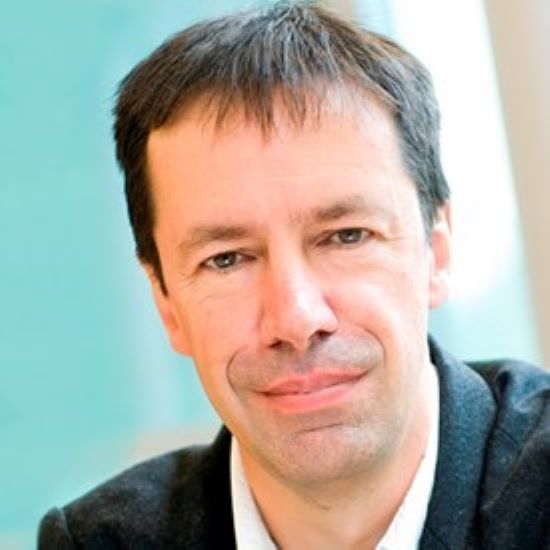
Professor James Durrant FRS, Imperial College London, Swansea University

Professor James Durrant FRS, Imperial College London, Swansea University
James Durrant is Professor of Photochemistry in the Department of Chemistry, Imperial College London and Sêr Cymru Solar Professor, College of Engineering University of Swansea. His research addresses the photochemistry of new materials for solar energy conversion – targeting both solar cells (photovoltaics) and solar to fuel (ie: artificial photosynthesis). It is based around employing transient optical and optoelectronic techniques to address materials function, and thereby elucidate design principles which can help guide technological development. His research is currently addressing the development and functional characterisation of organic and perovskite solar cells, and photoelectrodes and photocatalysts for solar driven fuel synthesis. In addition to his core research activities, Professor Durrant leads Imperial’s Centre for Plastic Electronics and the Welsh Government funded Sêr Cymru Solar initiative. He also founded the UK’s Solar Fuels Network, and was founding Deputy Director of Imperial’s Energy Futures Laboratory. His awards include both the Environment (2009) and Tilden (2012) Prizes of the RSC. He was elected a Fellow of the Learned Society of Wales in 2016.
| 12:00 - 12:05 |
Opening remarks
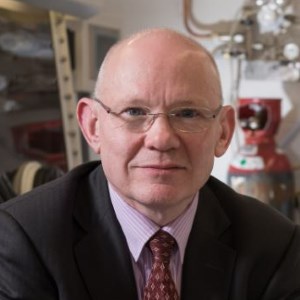
Professor Peter Bruce FRS

Professor Peter Bruce FRSPeter Bruce is Wolfson Professor of Materials at the University of Oxford. His research interests embrace materials chemistry and electrochemistry, with a particular emphasis on energy storage. Recent efforts have focused on the synthesis and understanding of new cathode materials for lithium and sodium ion batteries, understanding processes in all solid-state batteries and the challenges of the lithium-air battery. His pioneering work has provided many advances. Peter has received numerous awards, including the Tilden Prize of the RSC, the Carl Wagner Award of the ECS, the Liversidge Award of the RSC and the Hughes Medal of the RS. He has also been recognised as a Highly Cited Researcher by Clarivate Analytics each year since 2015. Peter is a founder and Chief Scientist of the Faraday Institution, the UK centre for research on electrochemical energy storage. Peter took up the position of Physical Secretary and Vice President of the Royal Society in 2018. |
|---|---|
| 12:05 - 12:30 |
Racing to net zero carbon: the route ahead for the built environment sector
This keynote speech will aim to set out what is required in order for the UK built environment to play its part in averting runaway climate change. With a Paris-proof 1.5C warming threshold in mind, this crucial sector which is directly responsible for over a fifth of the UK's total carbon footprint needs to achieve net zero emissions by 2050. This will require a fundamental rethink in the way that built assets are planned, designed, constructed, operated and maintained to achieve net zero whole life carbon. Covering both the basic definition of net zero carbon buildings and the need to scale up viable sustainable solutions, Julie will provide a wide-ranging sectoral view of the principal priorities ahead for both policy-makers and industry professionals. 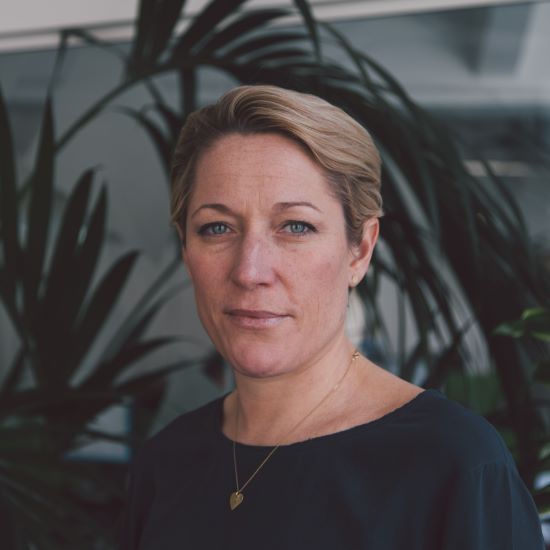
Julie Hirigoyen, Chief Executive, UK Green Building Council

Julie Hirigoyen, Chief Executive, UK Green Building CouncilJulie joined UKGBC as CEO in 2015, and has since been credited with transforming its strategy into a more member-focused, holistic sustainability agenda with a strong focus on impact measurement. At the helm of a fantastic team, Julie and UKGBC have some important achievements to celebrate – including galvanizing industry support for a net zero carbon legislative target in 2019, and influencing government policy at both national and local levels on a range of impact areas including net zero carbon, biodiversity net gain, climate resilience, and waste and resources strategy amongst others. Julie is a Commissioner on the London Sustainable Development Commission. She also Chairs the Igloo Footprint Advisory Board, and sits on both the Green Construction Board and Grimshaw’s Stewardship Group. Most recently she was appointed as a Trustee of the purpose-driven charity Blueprint for Better Business. In December 2019, she was named one of three best persons of the decade by Property Week. Julie was previously UK Head of Sustainability and an International Director at JLL, having come into JLL as a result of an acquisition. At JLL, Julie oversaw further development of cutting-edge sustainability services to property investors and occupiers across the UK and EMEA. |
Chair
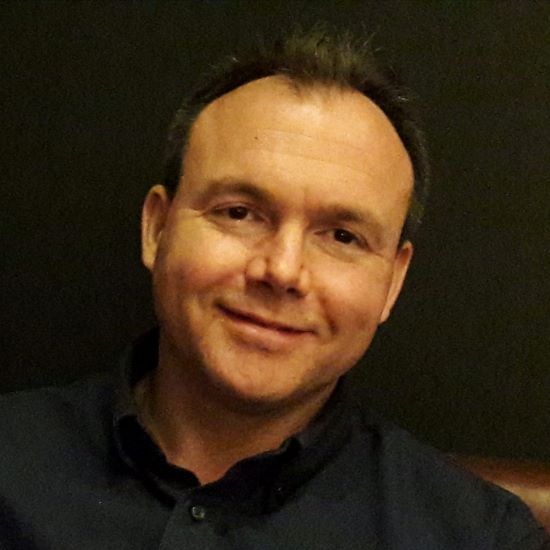
Adam Locke, Partnership and Innovation Leader, Laing O'Rourke

Adam Locke, Partnership and Innovation Leader, Laing O'Rourke
Adam is Partnership and Innovation Leader at Laing O’Rourke. He is responsible for collaborative research and development programmes to target greater certainty, productivity, and sustainability in the delivery and lifecycle of built assets, working with a range academic and industrial partners. Current programmes include the Product Based Building Solution Demonstrator project within the Transforming Construction Challenge as well as the Low Cost Nuclear programme to deliver a fleet solution of Small Modular Reactor (SMR) power plants led by Rolls-Royce to produce reliable and low carbon energy.
| 12:30 - 12:50 |
The global building design and construction sector is coming to terms with the fact that it is one of the largest sources of carbon emissions and key players within the industry have recognised that transforming our approach to design, use of materials, and methods of construction is a matter of urgency. The sector needs to move quickly toward agreeing a global definition for net zero carbon buildings as well as clarifying key concepts, such as embodied carbon. Minimum standards and targets for improved performance will drive down the carbon intensity of new and retrofitted buildings. We must focus on the introduction of no-or-low-regret solutions now, while we allow the sector some time to develop new business models and to test new technical solutions. To transform the global building design and construction sector at the speed and scale required we will need to take a systems approach. This is what will ensure that the combined impact of choices made about a building’s design, construction, operational and end-of-life deliver full decarbonisation. 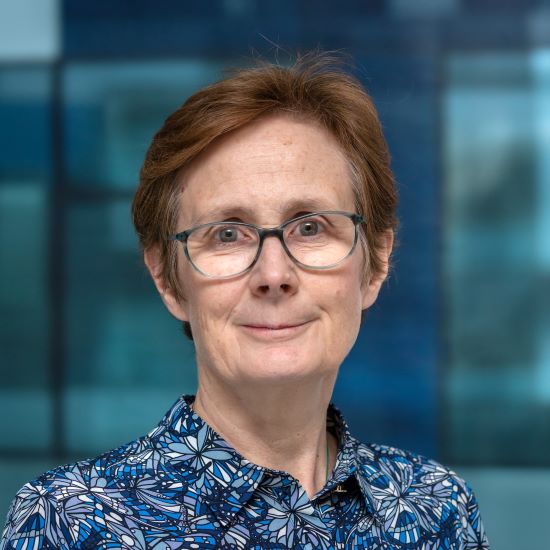
Dervilla Mitchell CBE FREng, Deputy Chair, Arup Group

Dervilla Mitchell CBE FREng, Deputy Chair, Arup GroupDervilla is a Civil Engineer with experience in leading major programmes notably Terminal 5, Heathrow, Terminal 2, Dublin, Abu Dhabi Midfield Terminal as well as the Athletes Village, London 2012. Until recently she was Executive Chair of Arup’s UK, India, Middle East and Africa business leading over 6000 engineers, advisors and specialist working on wide range of projects across the built environment. Dervilla is a Fellow of the Royal Academy of Engineering, the Institution of Civil Engineers, the Irish Academy of Engineering and Engineers Ireland. She has been active in championing diversity in the construction sector and supported initiatives to encourage young people to consider engineering as a career. She is a member of the Prime Ministers Council for Science and Technology and chairs the National Engineering Policy Centre’s decarbonising UK working group. |
|---|---|
| 12:50 - 13:10 |
Unlocking Building Sustainability: the role of value-based decision making
Clients and the industry are operating in a complex and evolving policy and regulatory environment. But for too long buildings have failed to deliver their intended performance and the construction sector lags in productivity and R&D. Society is rightly demanding more from the large investment we make in the built environment - it wants to see better social, economic and environmental benefits delivered. How can value-based decision-making help shift the status quo and unlock a future where industry is profitable and sustainable, the buildings we create are low carbon and high performing and society recognises the true value that the construction sector can bring? 
Keith Waller, Programme Director, Construction Innovation Hub

Keith Waller, Programme Director, Construction Innovation Hub |
| 13:10 - 13:30 |
The Role of Active Buildings in a Low Carbon Built Environment
This presentation will provide an introduction to SPECIFIC Innovation and Knowledge Centre, Swansea University and the Active Building concept they have developed as a solution to support the transition to a low carbon built environment. Active Buildings support local and national electricity grid networks by integrating renewable energy technologies, energy storage and smart controls for heat, power and transport. These buildings have a critical role to play in helping the UK Government meet their 2050 decarbonisation targets. SPECIFIC have designed and constructed several Active Building demonstrators, which utilise innovative technologies and incorporate extensive monitoring to test new models for reducing the operational energy and carbon of buildings. Learnings from these case studies will be presented. Finally, an Active Building Toolkit developed to aid the design of further Active Building projects will be introduced. 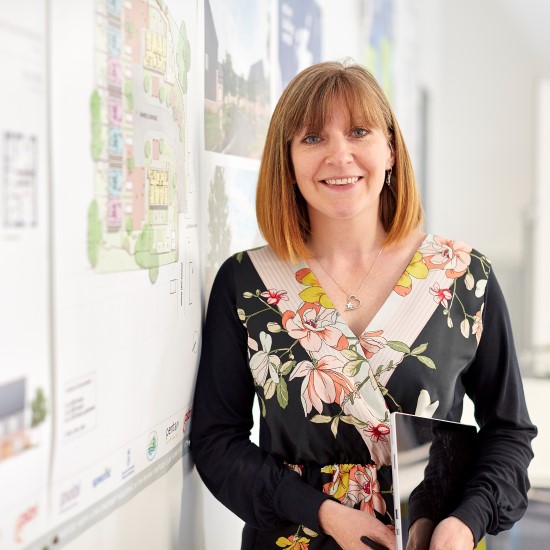
Joanna Clarke, Design Manager, SPECIFIC, Swansea University

Joanna Clarke, Design Manager, SPECIFIC, Swansea UniversityJoanna is a registered Architect, currently employed as a Design Manager at SPECIFIC Innovation and Knowledge Centre, Swansea University. Prior to joining SPECIFIC in 2013, she worked as a Project Architect in a commercial architectural practice for 13 years. Her main role at SPECIFIC is to support the design and delivery of low energy Active Building projects, which combine renewable energy generation and energy storage to reduce the overall energy consumption and carbon emissions of buildings. She designed and project managed the build of the Active Classroom in 2016 and the Active Office in 2018, on Swansea University’s Science and Innovation Campus, both of which demonstrate the Active Building concept developed at SPECIFIC. She has recently developed an Active Building Toolkit to aid the design of further Active Building projects, as part of a Professional Doctorate in the Sustainable Built Environment, which she hopes to complete this year. |
| 13:30 - 13:50 | Break |
|---|
Chair

Adam Locke, Partnership and Innovation Leader, Laing O'Rourke

Adam Locke, Partnership and Innovation Leader, Laing O'Rourke
Adam is Partnership and Innovation Leader at Laing O’Rourke. He is responsible for collaborative research and development programmes to target greater certainty, productivity, and sustainability in the delivery and lifecycle of built assets, working with a range academic and industrial partners. Current programmes include the Product Based Building Solution Demonstrator project within the Transforming Construction Challenge as well as the Low Cost Nuclear programme to deliver a fleet solution of Small Modular Reactor (SMR) power plants led by Rolls-Royce to produce reliable and low carbon energy.
| 13:45 - 14:05 |
Leading transformation at scale
Construction is an industry that affects everyone on the planet. The market is worth £7trn per year and growing, yet a large proportion of its activity creates no benefit. Waste in all its forms is rife, and in the result for customers is expense, uncertain quality, slow delivery and high running costs. The system hasn’t been working for anyone. With the UK’s 2018 Construction Sector Deal we set out to fix it. The Sector Deal’s three simple principles of procurement based on lifetime value, innovative methods of construction and scaling best practice, are now well on the way to becoming established. In this presentation Sam will explain what has been done and why he believes that we are on a journey to a built environment that is better than the world can currently imagine. 
Sam Stacey, Challenge Director, Transforming Construction, Innovate UK

Sam Stacey, Challenge Director, Transforming Construction, Innovate UKSam Stacey is a construction industry leader and writer on construction innovation. Since 2018 he has been Challenge Director for Construction at UKRI, implementing the Sector Deal for Construction as part of the UK’s 2017 Industrial Strategy. He has an MBA from Henley Business School and degrees in Civil Engineering, Architecture and Philosophy from Imperial College and Cambridge University. Sam chartered as a structural engineer while working at Buro Happold on the Faisaliyah Center in Riyadh. As Director of Innovation at Skanska UK he was known for promoting Flying Factories. In 2018 Sam joined UKRI as Challenge Director for Construction. The Transforming Construction Challenge, is accelerating construction’s shift towards value-based manufacturing and digital processes. With a budget of £170 million, matched by £250 million from industry, the Transforming Construction Challenge brings together contractors, supply chain, innovators, government, clients and the research community. Sam is a former trustee of the BRE. |
|---|---|
| 14:05 - 14:20 |
Sustainable Chemistry: A Question of Scale
The CNL is a unique project that will deliver an iconic facility to set new standards for laboratory design, management and operation. The facility will house 150 research scientists and will deliver high impact science within a carbon-neutral framework over a 25-year period. 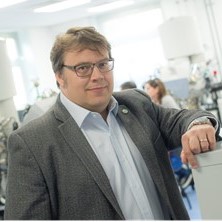
Peter Licence, Professor of Chemistry & Director, The GlaxoSmithKline Carbon Neutral Laboratory, University of Nottingham

Peter Licence, Professor of Chemistry & Director, The GlaxoSmithKline Carbon Neutral Laboratory, University of NottinghamRecognised as a leader in the field of Green and Sustainable Chemistry, Licence’s philosophy is to develop a framework of stewardship to take atoms to products with minimal environmental impact. Licence is a former chair of the prestigious Gordon Research Conference (GRC) on Green Chemistry; a Member of EPSRC College, an active reviewer for international grant awarding bodies and Executive Editor of the international journal ACS-Sustainable Chemistry and Engineering. Current research interests lie in the investigation, and development of efficient chemical transformations that allow the sustainable production of materials for application in the chemicals industry. Scientific contributions lie principally at the interface of synthesis and measurement where he is acknowledged as a pioneer of the field of ionic-liquid surface science. Current projects span the investigation of molecular interactions specifically at interfaces and discontinuities, particularly in the context of catalysis and small molecule-based sensing. Licence is author of > 170 peer-reviewed articles in the field of green and sustainable chemistry (h=45) and is committed to the teaching and development of greener and more sustainable chemistry in its broadest possible sense. |
| 14:20 - 14:35 |
The talk will discuss the Project at Goldsmith Street, the Passivhaus Design criteria, the process through to construction and some of the challenges faced. As part of this discussion Hannah will review why she feels Passivhaus is the most suitable design methodology to deliver the carbon reductions we need to achieve in the built environment. She will take the opportunity to introduce some of the fantastic guidance work that is being produced by many other great teams as part of the London Energy Transformation Initiative, whose work is providing a cohesive energy strategy guidance for achieving Zero Carbon. 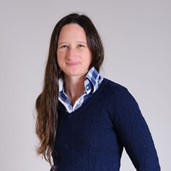
Hannah Jones, Founding Director, Greengauge

Hannah Jones, Founding Director, GreengaugeHannah set up Greengauge 11 years ago following work at a larger consultancy. With a background in engineering design and appropriate technology her experience in building services left her feeling Sustainability was being done in the wrong way, too much as a tick box not as a holistic approach to building design. With Toby she has built a Building Physics and M&E practice which looks to a facts based approach to design, aiming for simplicity and efficiency. Over the past 10 years this has developed into a focus on delivering Passivhaus in both new build and retrofit as well as helping as many projects along the road to a low energy and carbon approach as possible. Refurbishiment and Heritage buildings have always been of interest and Hannah and the Team are now working on some really exciting projects in which they hope to continue to learn and improve their knowledge and skills. |
| 14:35 - 14:50 |
Circular economy in construction : a successful case, the K-Briq
Resource constraints, competitiveness and environmental considerations are accelerating the shift towards a net zero economy. From collection to recycling, the waste market is globally estimated at £330Bn per annum reflecting in significant potential for job and wealth creation. The construction and demolition (C&D) sector is the largest contributor of waste globally; in the UK it is responsible for generating 120 million tonnes of waste every year – around one third of all waste in the UK. Given the global resource constraints, the recovery and re-use of raw materials from C&D waste is increasingly a factor of competitiveness and circular economy approaches are showing to be a timely and effective solution in many sectors. With that mind and considering the particular constrains in building materials, the K-Briq was developed utilising over 90% of recycled C&D waste. In this presentation, Gabi will discuss her journey from the development of the K-Briq to reaching market considering the drives for change, the technical and environmental challenges and market specifics. 
Professor Gabriela M. Medero, Heriot-Watt University

Professor Gabriela M. Medero, Heriot-Watt UniversityProfessor Gabriela Medero is Professor in Geotechnical and Geoenvironmental Engineering at Heriot-Watt University. Gabi is also the Chief Technical Officer of the spin-out company Kenoteq. She is a civil engineer and her research interest focus on development and understanding of thermo-hydro-mechanical behaviour of geomaterials going from construction materials to soils. She has been researching and developing innovative building materials made from recycled waste for over 15 years. Gabriela’s research has led to the spin-out company Kenoteq to be formed. Gabriela is the Head of the Geotechnics and Innovative Construction Materials Research Group at Heriot-Watt. |
| 14:50 - 15:30 |
Panel Discussion: Is the UK's New Build market effective in delivering the UKs sustainability objectives?

Professor Gabriela M. Medero, Heriot-Watt University

Professor Gabriela M. Medero, Heriot-Watt UniversityProfessor Gabriela Medero is Professor in Geotechnical and Geoenvironmental Engineering at Heriot-Watt University. Gabi is also the Chief Technical Officer of the spin-out company Kenoteq. She is a civil engineer and her research interest focus on development and understanding of thermo-hydro-mechanical behaviour of geomaterials going from construction materials to soils. She has been researching and developing innovative building materials made from recycled waste for over 15 years. Gabriela’s research has led to the spin-out company Kenoteq to be formed. Gabriela is the Head of the Geotechnics and Innovative Construction Materials Research Group at Heriot-Watt. 
Sam Stacey, Challenge Director, Transforming Construction, Innovate UK

Sam Stacey, Challenge Director, Transforming Construction, Innovate UKSam Stacey is a construction industry leader and writer on construction innovation. Since 2018 he has been Challenge Director for Construction at UKRI, implementing the Sector Deal for Construction as part of the UK’s 2017 Industrial Strategy. He has an MBA from Henley Business School and degrees in Civil Engineering, Architecture and Philosophy from Imperial College and Cambridge University. Sam chartered as a structural engineer while working at Buro Happold on the Faisaliyah Center in Riyadh. As Director of Innovation at Skanska UK he was known for promoting Flying Factories. In 2018 Sam joined UKRI as Challenge Director for Construction. The Transforming Construction Challenge, is accelerating construction’s shift towards value-based manufacturing and digital processes. With a budget of £170 million, matched by £250 million from industry, the Transforming Construction Challenge brings together contractors, supply chain, innovators, government, clients and the research community. Sam is a former trustee of the BRE. 
Peter Licence, Professor of Chemistry & Director, The GlaxoSmithKline Carbon Neutral Laboratory, University of Nottingham

Peter Licence, Professor of Chemistry & Director, The GlaxoSmithKline Carbon Neutral Laboratory, University of NottinghamRecognised as a leader in the field of Green and Sustainable Chemistry, Licence’s philosophy is to develop a framework of stewardship to take atoms to products with minimal environmental impact. Licence is a former chair of the prestigious Gordon Research Conference (GRC) on Green Chemistry; a Member of EPSRC College, an active reviewer for international grant awarding bodies and Executive Editor of the international journal ACS-Sustainable Chemistry and Engineering. Current research interests lie in the investigation, and development of efficient chemical transformations that allow the sustainable production of materials for application in the chemicals industry. Scientific contributions lie principally at the interface of synthesis and measurement where he is acknowledged as a pioneer of the field of ionic-liquid surface science. Current projects span the investigation of molecular interactions specifically at interfaces and discontinuities, particularly in the context of catalysis and small molecule-based sensing. Licence is author of > 170 peer-reviewed articles in the field of green and sustainable chemistry (h=45) and is committed to the teaching and development of greener and more sustainable chemistry in its broadest possible sense. 
Hannah Jones, Founding Director, Greengauge

Hannah Jones, Founding Director, GreengaugeHannah set up Greengauge 11 years ago following work at a larger consultancy. With a background in engineering design and appropriate technology her experience in building services left her feeling Sustainability was being done in the wrong way, too much as a tick box not as a holistic approach to building design. With Toby she has built a Building Physics and M&E practice which looks to a facts based approach to design, aiming for simplicity and efficiency. Over the past 10 years this has developed into a focus on delivering Passivhaus in both new build and retrofit as well as helping as many projects along the road to a low energy and carbon approach as possible. Refurbishiment and Heritage buildings have always been of interest and Hannah and the Team are now working on some really exciting projects in which they hope to continue to learn and improve their knowledge and skills. |
Chair

Dr Fiona Riddoch Phd MBA

Dr Fiona Riddoch Phd MBA
Fiona Riddoch is a consultant specialising in strategy, policy development and innovation in energy and carbon reduction. In 2018 she co-founded Words That Carry On, a mental health research fund. She is also trustee of a UK work-based pension fund.
Fiona spent over 20 years in product design, manufacturing and management, much of this in heating controls at Honeywell Inc. In 2000 she started providing strategic and product marketing leadership to technology start-ups, including renewable energy. She became CEO to the European Association for Combined Heat and Power in Brussels in 2006, cofounding the Coalition for Energy Savings in Brussels which participates in EU energy efficiency policy development. She is a working group member of the EU’s EEFIG on financing Climate Change Response investments.
Fiona Riddoch started her career researching heat recovery and photovoltaic design at Heriot Watt and Strathclyde Universities. She holds an MBA from Edinburgh University and was one of the first cohort of Royal Society Entrepreneurs in residence being based at the University of Edinburgh. Fiona has served on the SIT committee of the Royal Society.
| 11:45 - 12:05 |
The Green Homes Revolution: The need for a National Retrofit Strategy
The UK Government has a legal obligation to reduce carbon emissions to zero by 2050. Our existing homes contribute 20% of carbon emissions so without a strategy to make our homes greener and more energy efficient the Government won't deliver its target. What is needed is a long term National Retrofit Strategy to make our existing homes more energy efficient. This requires a co-ordinated approach to help create a sustainable retrofit market bringing together consumer information, financial incentives, measures to help create capacity in the construction sector and recognised standards. 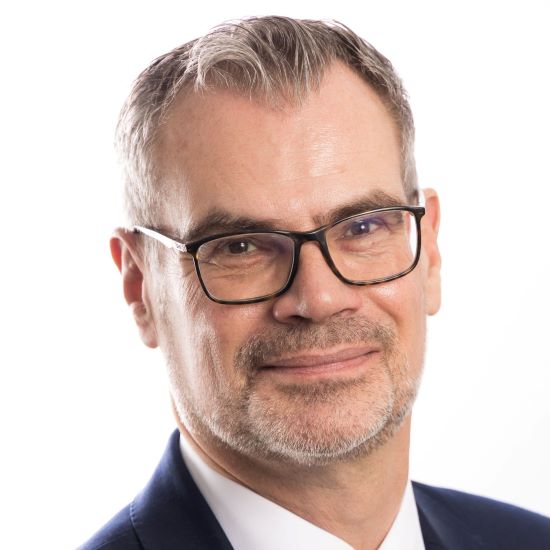
Brian Berry, Chief Executive, Federation of Master Builders

Brian Berry, Chief Executive, Federation of Master BuildersBrian Berry is the Chief Executive of the Federation of Master Builders (FMB), the largest trade association in the building industry. He is also a member of the Construction Leadership Council (CLC) and Chair of the CLC Domestic Repair Maintenance & Improvement Working Group. Prior to his current position Brian was Director of External Affairs at the FMB with responsibility for UK and EU policy, public affairs and media relations. Before the FMB, he worked at the Royal Institution of Chartered Surveyors (RICS), where he was Head of UK Public Policy. Brian regularly provides commentary on construction issues for television, national and trade press. |
|---|---|
| 12:05 - 12:20 |
Overcoming Challenges to Energy Renovation of Buildings
The climate emergency pervades our lives, making us all aware of the negative impact that rampant human activity is having on our biosphere. The necessity to act is more urgent than ever and action must take place in all sections of society. One extremely important sector to address is the buildings sector, which is responsible, within the EU, for 40% of primary energy consumption and 36% of energy-related CO2 emissions. EuroACE – Energy Efficient Buildings, has been speaking out in favour of highly energy efficient buildings for over 20 years and our work has strongly influenced the buildings-related EU legislative framework. This talk will outline our work and will highlight legislative and technological advances that are showing the way towards a highly energy efficient and decarbonised building stock in the EU. It will be illustrated with real-life examples of the way forward drawn from the work of our Renovate Europe Campaign. 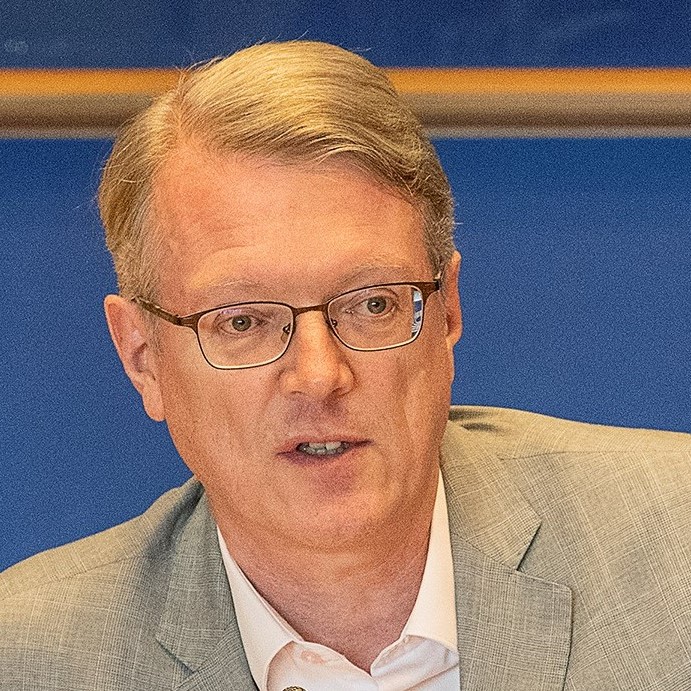
Adrian M Joyce, Secretary General, EuroACE

Adrian M Joyce, Secretary General, EuroACESecretary General of EuroACE – Energy Efficient Buildings, whose members are Europe’s leading companies that provide the products, equipment and services that go together to create highly energy efficient buildings. EuroACE monitors the work of the EU Institutions and consistently calls for an ambitious EU policy and legislation framework that will deliver highly energy efficient and decarbonised buildings by 2050. Adrian Joyce is also the Campaign Director of the Renovate Europe Campaign, which was initiated by EuroACE in 2011 to stop energy waste in buildings. Its ambition is to reduce the energy demand of the building stock in the EU by 80% by 2050 as compared to 2005. Adrian Joyce is a professionally qualified architect who spent 17 years in private before getting involved full-time in buildings-related EU policy. He holds a part-time post teaching Construction Technology at the Catholic University of Louvain-le-Neuve, and he was Chairman of the Coalition for Energy Savings from May 2017 to December 2020. |
| 12:20 - 12:35 |
Developing a UK Net Zero Market
Energiesprong UK is helping develop a market for net zero housing, with an initial focus on whole house retrofit. It works across demand, supply and policy to help decision-makers understand what is required to make a functioning market, with the ultimate aim that it won’t be needed. The Energiesprong model, adapted from the Netherlands, is designed to catalyse a self-financing business model. High-quality, real-world performance, and cost reduction are essential, and are achieved by driving innovation in offsite manufacture for fabric and energy solutions. Join Head of Strategy and Operations, Emily Braham to hear about: - What they’ve learned from UK Energiesprong pilot projects 
Emily Braham, Head of Strategy and Operations, Energiesprong UK

Emily Braham, Head of Strategy and Operations, Energiesprong UKEmily Braham is Head of Strategy and Operations within the Market Development Team at Energiesprong UK. Emily has an MSc in area based retrofit, and 16 years of experience in the social housing sector, delivering some of the UK’s most innovative retrofit schemes. She is passionate about using collective action to drive energy efficiency in the sector and brings hands-on knowledge and creative thinking to help solve our net zero challenges. |
| 12:35 - 12:50 |
Bringing Storage to Heat: a scalable solution to sustainable retrofitting
Accelerating transition to a world powered by affordable and sustainable energy is essential to save the planet. Energy storage is at the heart of making renewables work and since heating and cooling in buildings and industry accounts for half of energy consumption in the EU, and in countries like the UK over 80% of energy used in the home is for heating and hot water, it follows that thermal storage has a vital role to play in lowering carbon emissions globally. Designed and manufactured in Scotland for a global market, Sunamp’s world-leading thermal storage technologies, developed in partnership with University of Edinburgh, are based on patented non-toxic Phase Change Materials. They store energy from a wide choice of sources and release it for heating, cooling and hot water on demand. Compact, safe and efficient, the technology has applications in residential, industrial and automotive sectors. But good intentions and great inventions were just the start. This talk is about the role of innovative thermal storage in decarbonisation of heating and cooling buildings, and walks through meeting technical, commercial and consumer challenges to speed up adoption of renewable energy worldwide. 
Andrew Bissell, Founder & CEO, Sunamp Ltd

Andrew Bissell, Founder & CEO, Sunamp LtdAlready a ‘veteran technology entrepreneur’ having built and sold one of Scotland’s most successful medical technology businesses, Andrew pursued his passion for entrepreneurship when he founded Sunamp in 2005. His aim was to develop an affordable and sustainable solution for heat energy storage for commercial and domestic markets. He lead one of the most exciting academic and industry partnerships in Scotland, teaming up with the University of Edinburgh to develop the unique heat energy storage phase-change material used in Sunamp batteries. Andrew is Sunamp’s visionary and drives the senior management team in setting strategy and extending Sunamp’s product and technology lead.
|
| 12:50 - 13:30 |
Panel Discussion: Scalable solutions to sustainable retrofitting

Brian Berry, Chief Executive, Federation of Master Builders

Brian Berry, Chief Executive, Federation of Master BuildersBrian Berry is the Chief Executive of the Federation of Master Builders (FMB), the largest trade association in the building industry. He is also a member of the Construction Leadership Council (CLC) and Chair of the CLC Domestic Repair Maintenance & Improvement Working Group. Prior to his current position Brian was Director of External Affairs at the FMB with responsibility for UK and EU policy, public affairs and media relations. Before the FMB, he worked at the Royal Institution of Chartered Surveyors (RICS), where he was Head of UK Public Policy. Brian regularly provides commentary on construction issues for television, national and trade press. 
Adrian M Joyce, Secretary General, EuroACE

Adrian M Joyce, Secretary General, EuroACESecretary General of EuroACE – Energy Efficient Buildings, whose members are Europe’s leading companies that provide the products, equipment and services that go together to create highly energy efficient buildings. EuroACE monitors the work of the EU Institutions and consistently calls for an ambitious EU policy and legislation framework that will deliver highly energy efficient and decarbonised buildings by 2050. Adrian Joyce is also the Campaign Director of the Renovate Europe Campaign, which was initiated by EuroACE in 2011 to stop energy waste in buildings. Its ambition is to reduce the energy demand of the building stock in the EU by 80% by 2050 as compared to 2005. Adrian Joyce is a professionally qualified architect who spent 17 years in private before getting involved full-time in buildings-related EU policy. He holds a part-time post teaching Construction Technology at the Catholic University of Louvain-le-Neuve, and he was Chairman of the Coalition for Energy Savings from May 2017 to December 2020. 
Emily Braham, Head of Strategy and Operations, Energiesprong UK

Emily Braham, Head of Strategy and Operations, Energiesprong UKEmily Braham is Head of Strategy and Operations within the Market Development Team at Energiesprong UK. Emily has an MSc in area based retrofit, and 16 years of experience in the social housing sector, delivering some of the UK’s most innovative retrofit schemes. She is passionate about using collective action to drive energy efficiency in the sector and brings hands-on knowledge and creative thinking to help solve our net zero challenges. 
Andrew Bissell, Founder & CEO, Sunamp Ltd

Andrew Bissell, Founder & CEO, Sunamp LtdAlready a ‘veteran technology entrepreneur’ having built and sold one of Scotland’s most successful medical technology businesses, Andrew pursued his passion for entrepreneurship when he founded Sunamp in 2005. His aim was to develop an affordable and sustainable solution for heat energy storage for commercial and domestic markets. He lead one of the most exciting academic and industry partnerships in Scotland, teaming up with the University of Edinburgh to develop the unique heat energy storage phase-change material used in Sunamp batteries. Andrew is Sunamp’s visionary and drives the senior management team in setting strategy and extending Sunamp’s product and technology lead.
|
Chair

Dr Fiona Riddoch Phd MBA

Dr Fiona Riddoch Phd MBA
Fiona Riddoch is a consultant specialising in strategy, policy development and innovation in energy and carbon reduction. In 2018 she co-founded Words That Carry On, a mental health research fund. She is also trustee of a UK work-based pension fund.
Fiona spent over 20 years in product design, manufacturing and management, much of this in heating controls at Honeywell Inc. In 2000 she started providing strategic and product marketing leadership to technology start-ups, including renewable energy. She became CEO to the European Association for Combined Heat and Power in Brussels in 2006, cofounding the Coalition for Energy Savings in Brussels which participates in EU energy efficiency policy development. She is a working group member of the EU’s EEFIG on financing Climate Change Response investments.
Fiona Riddoch started her career researching heat recovery and photovoltaic design at Heriot Watt and Strathclyde Universities. She holds an MBA from Edinburgh University and was one of the first cohort of Royal Society Entrepreneurs in residence being based at the University of Edinburgh. Fiona has served on the SIT committee of the Royal Society.
| 13:50 - 14:15 |
Creating the right framework to deliver outcomes – from prescription and compliance to leadership and responsibility
Four years on from the tragic fire at Grenfell Tower new regulation is now making its way through Parliament that will bring once in a generation change to the way in which high rise residential buildings are designed, constructed and managed throughout occupation. The new legislation will implement the findings of Dame Judith’s review "Building a Safer Future" which concluded in May 2018 that the current system was not fit for purpose. As the industry takes on the challenges of delivering net zero it is essential that we do not lose sight of other imperatives – including the need to build dwellings that are safe for people to live in. This presentation will focus on the need to meet multiple objectives if we are to deliver truly sustainable solutions. 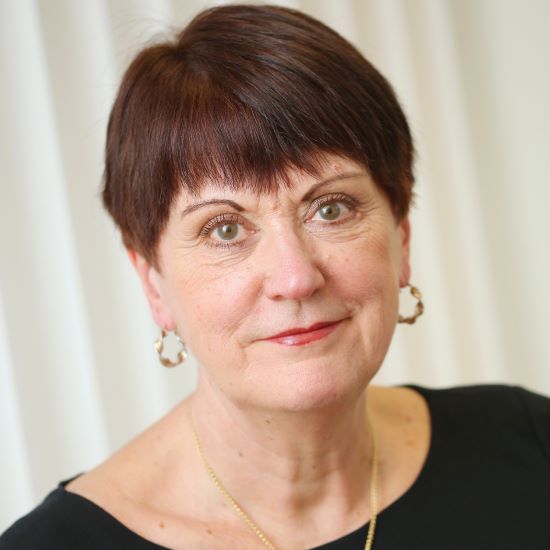
Dame Judith Hackitt DBE FREng, Chair of MakeUK and Independent Adviser to UK Government on Building Safety

Dame Judith Hackitt DBE FREng, Chair of MakeUK and Independent Adviser to UK Government on Building SafetyDame Judith was appointed as Chair of Make UK (formerly EEF) in April 2016. She was HSE Chair from October 2007-March 2016. She previously served as a Commissioner between 2002 and 2005. Dame Judith is a chemical engineer. She worked in the chemicals manufacturing industry for 23 years before joining the Chemical Industries Association in 1998. She became CIA Director General (from 2002-2005) then worked in Brussels for the European Chemical Industry Association (CEFIC). She was elected as a Fellow of the Royal Academy of Engineering in 2010 and is currently a member of the Board of Trustees. Dame Judith is a Fellow of the Institution of Chemical. Dame Judith is also Chair of Enginuity (formerly SEMTA), senior NED of the High Value Manufacturing Catapult and a NED of HS2 Ltd. In August 2017 Dame Judith was asked by DCLG to Chair an Independent Review of Building Regulations and Fire Safety and her final report was published in May 2018. She now acts as an Independent Adviser to Government on Building Safety. |
|---|---|
| 14:15 - 14:30 |
Making the energy transition work for energy consumers: the challenge for policy
The UK will only be able to decarbonise its energy system by getting users engaged and investing in energy efficiency, low carbon heat and providing smart flexibility. For this to happen, the energy system must work for the user. The Association for Decentralised Energy (ADE) works closely with its members, government and other key stakeholders to shape a policy and regulatory landscape that will deliver such a system. Joanne will explain the ADE’s aims and highlight some of the policy and thought leadership work that it delivers on its members’ behalf. 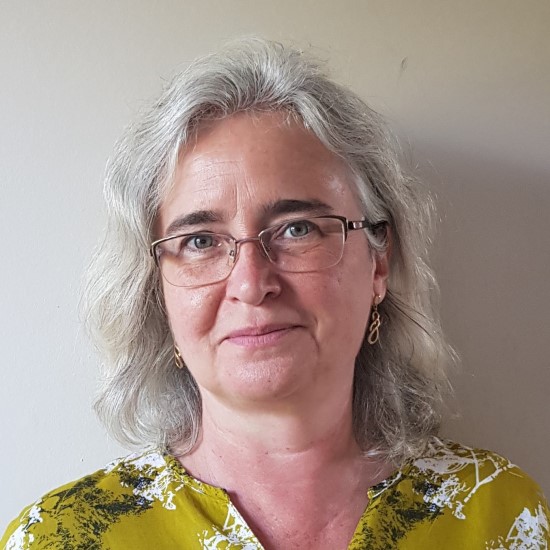
Dr Joanne Wade OBE, Chief Strategic Advisor, The Association for Decentralised Energy

Dr Joanne Wade OBE, Chief Strategic Advisor, The Association for Decentralised EnergyJoanne is Chief Strategic Advisor at the ADE and also works as an independent consultant. Her areas of expertise include local energy systems, energy efficiency in buildings, energy sufficiency and the multiple benefits of energy demand reduction. Joanne chairs the Advisory Board for the Centre for Research on Energy Demand Solutions (CREDS) and the Research Committee for the UK Energy Research Centre (UKERC). She is a member of the advisory boards for UKERC, EnergyREV (the research element of Innovate UK’s ‘Prospering from the Energy Revolution’ programme), the Energy Futures Lab at Imperial College London and the Sussex Energy Group. Joanne has a PhD, MSc in Environmental Technology (Energy Policy) and BSc in Chemistry with Management Science from Imperial College London. She is a Fellow and Member of Council of the Energy Institute. She was appointed an OBE in 2018 for services to energy efficiency. |
| 14:30 - 14:45 |
Tackling the Politics & the Policy of UK Building Decarbonisation
Making the UK building stock truly zero carbon and climate resilient is probably the most technically complex and politically contentious part of the climate transition. Despite a world-leading construction, engineering and green finance sector the UK is at high risk of missing its ambitious 2030 climate targets in this area. With a history of stop-start policy, underperforming funding schemes and one-off pilot projects there is need for structural change in how the UK manages this transition not just new policy ideas. Drawing on E3G’s long experience in shaping UK and EU policies and politics Nick Mabey will discuss what needs to change in the UK’s institutional and policy delivery landscape, what the UK can earn from other countries and how to build the public support for rapid and deep change. 
Nick Mabey, Co-founding Director and Chief Executive, E3G

Nick Mabey, Co-founding Director and Chief Executive, E3GNick Mabey is the Chief Executive of E3G and a founder director since 2006. In addition to his leadership role, he engages on issues of climate diplomacy, foreign policy, European politics and the security implications of climate change and resource scarcity. Nick is a regular commentator and public speaker on climate change issues in the global media and on social media. Nick participates in a range of external appointments including as a London Sustainable Development Commissioner, a trustee of Ashden, a Friend of COP 26 and a member of the World Economic Forum’s Global Future Council on Energy Transition. Nick has also been instrumental in leading London Climate Action Week since its founding in 2019. Previously Nick was a senior advisor in the UK Prime Minister’s Strategy Unit leading work on climate change, countries at risk of instability and organised crime. He was seconded to help establish the UK Foreign and Commonwealth Office’s Environment Policy Department and climate diplomacy network in 1999. Nick was Head of Economics and Development at WWF-UK following research at London Business School on the macroeconomics of climate change which was published as “Argument in the Greenhouse”. Nick has a degree in mechanical engineering from Bristol University and a Masters in Technology and Policy from MIT. He began his career as an engineer in the UK electricity industry. |
| 14:45 - 15:00 |
How Finance can Unlock Building Sustainability: Six financial levers to accelerate the decarbonisation of the construction and operation of European buildings
Experts assert that the EU Renovation Wave is a much-needed strategy to decarbonise the EU building stock. Nevertheless, this strategy is a complex task that requires the synchronization of different efforts supported by proper financing. This presentation will discuss the six-month project carried out by Climate Strategy & Partners, which identified six urgent financial-policy levers to decarbonise EU buildings in line with the Renovation Wave Strategy. In addition, this project -funded by the Laudes Foundation- resulted in a set of strategies addressing the complexity of decarbonising EU buildings, as well as the mapping of concrete opportunities for decarbonisation offered by the different technologies, initiatives, and current and forthcoming regulation. 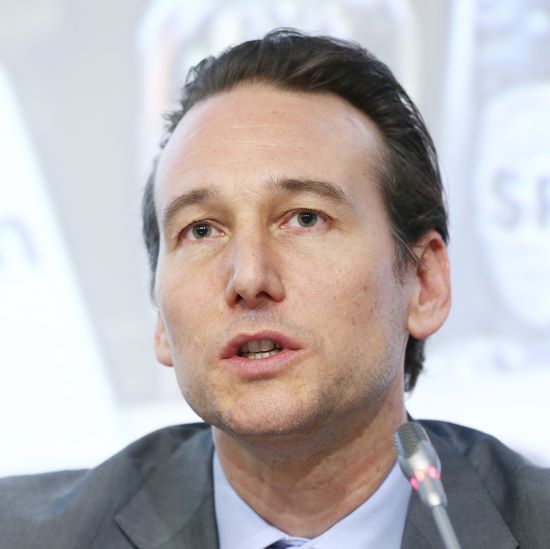
Peter Sweatman, Chief Executive, Climate Strategy & Partners

Peter Sweatman, Chief Executive, Climate Strategy & PartnersPeter Sweatman has spent 27 years in finance of which 17 are climate finance and energy efficiency. He is the Chief Executive of Climate Strategy & Partners (@ClimateSt), a strategic consulting group in Clean Energy, Clean Technology Innovation and Energy Efficiency working with leading companies and policymakers in the global energy transition. Peter is also Chairman and founder of Energy Efficiency Capital Advisors an expert solution provider and finance structuring partner for over Euro 60 million of finance for energy savings and on-site power in Spanish cities. Peter has published fifteen white papers and chaired, moderated or spoken at 357 conferences and workshops on the global energy transition to a climate neutral economy. Peter is a founder advisor to the Climate Bond Initiative, an active member of the Ashoka Support Network, advisor to the Climate Lab, Braemar Energy Ventures, rapporteur for EU Commission and UNEP FI’s EEFIG and G20’s EEFTG, member of the steering committee of the Global Alliance for Energy Productivity, Build-Upon and the Investor Confidence Project Europe, board member of Menorca Preservation Fund and visiting lecturer at IIT-Comillas university. Over the last 3 years, Peter has also developed an engaged interest in funding innovation for European decarbonisation since chairing and writing-up a 250-expert process to input to the design of the EU ETS Innovation fund and publishing a 2018 review of EU finance for competitive innovation for net-zero emissions by 2050. Peter holds an MA Cantab degree in Engineering and Management Studies from Cambridge University. In 1991, he joined JPMorgan in Corporate Finance where he spent 9 years responsible for client business, mainly in debt capital markets, for Spain, Portugal, Austria and Switzerland based in London and then for Mexico and other Latin American countries from New York. In the year 2000, Peter became a social entrepreneur to found three successful and high impact NGOs: Charity Digital, New Philanthropy Capital and Catalyst Climate Change Trust. From 2005, Peter was a Managing Director in Bunge-Climate Change Capital that was – from 2004-2010 - one of the world’s leading specialist fund managers and advisors in the low carbon economy. |
| 15:00 - 16:00 |
Panel Discussion: Policy agenda and de-risking technical uncertainties in the industry

Dame Judith Hackitt DBE FREng, Chair of MakeUK and Independent Adviser to UK Government on Building Safety

Dame Judith Hackitt DBE FREng, Chair of MakeUK and Independent Adviser to UK Government on Building SafetyDame Judith was appointed as Chair of Make UK (formerly EEF) in April 2016. She was HSE Chair from October 2007-March 2016. She previously served as a Commissioner between 2002 and 2005. Dame Judith is a chemical engineer. She worked in the chemicals manufacturing industry for 23 years before joining the Chemical Industries Association in 1998. She became CIA Director General (from 2002-2005) then worked in Brussels for the European Chemical Industry Association (CEFIC). She was elected as a Fellow of the Royal Academy of Engineering in 2010 and is currently a member of the Board of Trustees. Dame Judith is a Fellow of the Institution of Chemical. Dame Judith is also Chair of Enginuity (formerly SEMTA), senior NED of the High Value Manufacturing Catapult and a NED of HS2 Ltd. In August 2017 Dame Judith was asked by DCLG to Chair an Independent Review of Building Regulations and Fire Safety and her final report was published in May 2018. She now acts as an Independent Adviser to Government on Building Safety. 
Dr Joanne Wade OBE, Chief Strategic Advisor, The Association for Decentralised Energy

Dr Joanne Wade OBE, Chief Strategic Advisor, The Association for Decentralised EnergyJoanne is Chief Strategic Advisor at the ADE and also works as an independent consultant. Her areas of expertise include local energy systems, energy efficiency in buildings, energy sufficiency and the multiple benefits of energy demand reduction. Joanne chairs the Advisory Board for the Centre for Research on Energy Demand Solutions (CREDS) and the Research Committee for the UK Energy Research Centre (UKERC). She is a member of the advisory boards for UKERC, EnergyREV (the research element of Innovate UK’s ‘Prospering from the Energy Revolution’ programme), the Energy Futures Lab at Imperial College London and the Sussex Energy Group. Joanne has a PhD, MSc in Environmental Technology (Energy Policy) and BSc in Chemistry with Management Science from Imperial College London. She is a Fellow and Member of Council of the Energy Institute. She was appointed an OBE in 2018 for services to energy efficiency. 
Nick Mabey, Co-founding Director and Chief Executive, E3G

Nick Mabey, Co-founding Director and Chief Executive, E3GNick Mabey is the Chief Executive of E3G and a founder director since 2006. In addition to his leadership role, he engages on issues of climate diplomacy, foreign policy, European politics and the security implications of climate change and resource scarcity. Nick is a regular commentator and public speaker on climate change issues in the global media and on social media. Nick participates in a range of external appointments including as a London Sustainable Development Commissioner, a trustee of Ashden, a Friend of COP 26 and a member of the World Economic Forum’s Global Future Council on Energy Transition. Nick has also been instrumental in leading London Climate Action Week since its founding in 2019. Previously Nick was a senior advisor in the UK Prime Minister’s Strategy Unit leading work on climate change, countries at risk of instability and organised crime. He was seconded to help establish the UK Foreign and Commonwealth Office’s Environment Policy Department and climate diplomacy network in 1999. Nick was Head of Economics and Development at WWF-UK following research at London Business School on the macroeconomics of climate change which was published as “Argument in the Greenhouse”. Nick has a degree in mechanical engineering from Bristol University and a Masters in Technology and Policy from MIT. He began his career as an engineer in the UK electricity industry. 
Peter Sweatman, Chief Executive, Climate Strategy & Partners

Peter Sweatman, Chief Executive, Climate Strategy & PartnersPeter Sweatman has spent 27 years in finance of which 17 are climate finance and energy efficiency. He is the Chief Executive of Climate Strategy & Partners (@ClimateSt), a strategic consulting group in Clean Energy, Clean Technology Innovation and Energy Efficiency working with leading companies and policymakers in the global energy transition. Peter is also Chairman and founder of Energy Efficiency Capital Advisors an expert solution provider and finance structuring partner for over Euro 60 million of finance for energy savings and on-site power in Spanish cities. Peter has published fifteen white papers and chaired, moderated or spoken at 357 conferences and workshops on the global energy transition to a climate neutral economy. Peter is a founder advisor to the Climate Bond Initiative, an active member of the Ashoka Support Network, advisor to the Climate Lab, Braemar Energy Ventures, rapporteur for EU Commission and UNEP FI’s EEFIG and G20’s EEFTG, member of the steering committee of the Global Alliance for Energy Productivity, Build-Upon and the Investor Confidence Project Europe, board member of Menorca Preservation Fund and visiting lecturer at IIT-Comillas university. Over the last 3 years, Peter has also developed an engaged interest in funding innovation for European decarbonisation since chairing and writing-up a 250-expert process to input to the design of the EU ETS Innovation fund and publishing a 2018 review of EU finance for competitive innovation for net-zero emissions by 2050. Peter holds an MA Cantab degree in Engineering and Management Studies from Cambridge University. In 1991, he joined JPMorgan in Corporate Finance where he spent 9 years responsible for client business, mainly in debt capital markets, for Spain, Portugal, Austria and Switzerland based in London and then for Mexico and other Latin American countries from New York. In the year 2000, Peter became a social entrepreneur to found three successful and high impact NGOs: Charity Digital, New Philanthropy Capital and Catalyst Climate Change Trust. From 2005, Peter was a Managing Director in Bunge-Climate Change Capital that was – from 2004-2010 - one of the world’s leading specialist fund managers and advisors in the low carbon economy. |
